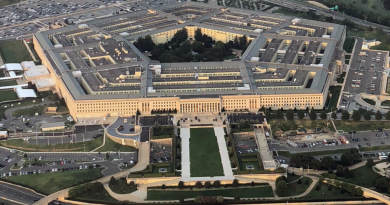FOCUS on Extended Violence: Ethiopia
Emily Vaca
Staff Writer
Ethiopia has been undergoing an intense political dispute that erupted into horrific violence. Despite the official end of the civil war, Al Jazeera explains that Eritrean forces have yet to leave the country.
On November 3, 2022, the Ethiopian federal government and the Tigray’s People Liberation Front (TLPF) agreed to a ceasefire, ending a civil war that took thousands of lives with it.
However, Eritrean troops are still in Tigray. Many residents state that Eritrean soldiers continue to loot, arrest, and kill civilians long after the ceasefire, according to Al Jazeera. Analysts believe that the continued presence of these soldiers means Eritrean troops could commit even more atrocities, which would perpetuate the harm experienced by many Tigrayan civilians.
The New Humanitarian explains that some of the worst atrocities committed against civilians were by Eritrean soldiers allied to Ethiopia’s military, who are accused of waging a campaign of rape and sexual slavery in Tigray and of killing hundreds of men and boys in the holy city of Axum, one of several bloody massacres.
While eyewitnesses attest that Eritrean forces are still on the ground in Ethiopia, according to Reuters, a senior Ethiopian military officer, Major General Teshome Gemechu, claims “there is no other security force in the Tigray region except the Federal Democratic Republic of Ethiopia (FDRE) Defense Forces.”
The TPLF is known for their long lasting rule over politics in Ethiopia, having been in power since 1991, according to the Council on Foreign Relations (CFR). From the 1970s to 1980s, the TPLF fought to overthrow the government of the time. Winning this civil war allowed the TPLF to become a member of the coalition government. The coalition granted autonomy to Ethiopian regions, but also enabled an extraneous grip on the central government, which was criticized by many Ethiopians.
However, in 2018, Prime Minister Abiy Ahmed Ali was elected, promising a new power distribution in Ethiopia. This new prime minister was praised as Ethiopia’s new hope, allowing for a stronger sense of community within the diverse ethnic groups. Prime Minister Abiy went on to dissolve the coalition that allowed the TPLF into power, creating a new political party, Prosperity Party, CFR continues. The prime minister arbitrated the end of violence happening at the Eritrean-Ethiopian border in 2018, which started in 1998.
In 2019, ethnic relations started to fall apart once again. The TPLF held their own election, which was considered an unprecedented act of defiance against the central government, according to BBC News. This election worsened ethnic tensions within the country, as it caused the TPLF and Prime Minister Abiy to call the other illegitimate, sparking arguments that would cause more turmoil.
From there, a civil war started between the TPLF and the Ethiopian federal government. Additionally, the federal government would have help from the Eritrean government, who sent troops to Tigray to fight against the TPLF.
The Washington Post reports that Abiy warned that the federal government would not tolerate opposition to the decree, stating that those who are “intentionally playing a destructive role, law enforcement measures will be taken.”
More than two million of Tigray’s people have fled their homes since November 4, 2020. According to BBC News, these tensions broke out into human rights abuses, such as mass rape, extra-judicial killing and the use of starvation as a tactic. Many Tigrayans have been forced to seek refuge in Sudan.
According to The Guardian, survivors of these massacres perpetrated by the Eritrean troops explain how the troops “turned off the main asphalt road leading out of the town on 25 October, after suffering heavy casualties, and took their frustration out on the local population.” This ongoing battle between Tigrayan civilians and the Eritrean troops will only worsen, especially because of the Ethiopian federal government’s refusal to acknowledge their continued presence.
Image courtesy of UNHCR/Adeline Gomez Monteagud



